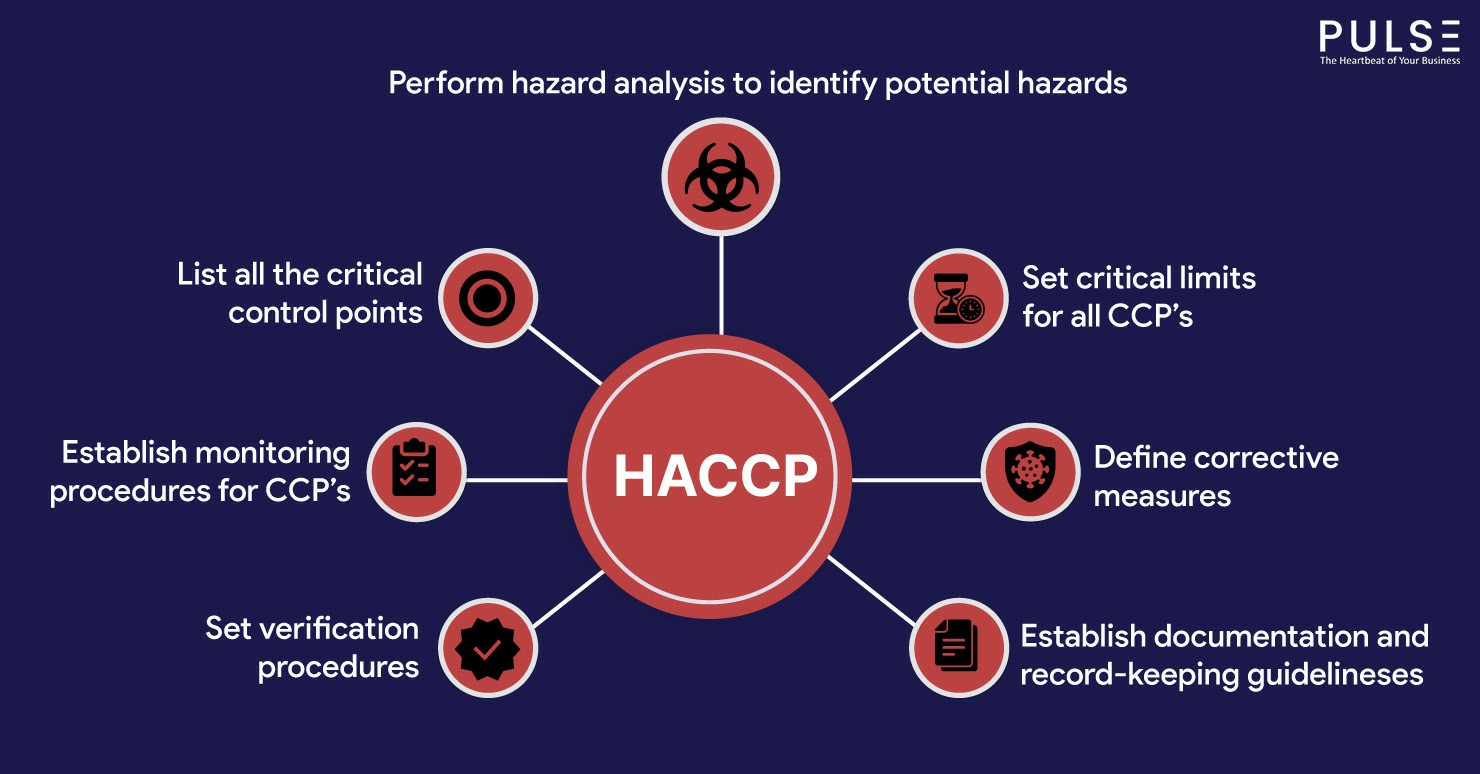


 349,500 Offered Certificates
349,500 Offered Certificates
 24/7 Online Training
24/7 Online Training
 Money Back Guarantee
Money Back Guarantee
 Fully Accredited Courses
Fully Accredited Courses

Created at: 26-02-2025 12:23
As the demand for high-quality food continues to rise, so does the responsibility of food businesses to ensure safety and compliance with food safety regulations. In Ireland, HACCP (Hazard Analysis and Critical Control Points) training is paramount for adhering to both Irish and EU food safety laws. This comprehensive guide explores how HACCP certification empowers food businesses across Dublin, Cork, Galway, Limerick, Waterford, and Belfast to uphold rigorous food hygiene standards, prevent contamination, and foster consumer trust.
HACCP stands for Hazard Analysis and Critical Control Points. It is a systematic approach designed to identify, evaluate, and control food safety hazards. The principal purpose of HACCP is to prevent food safety issues before they happen rather than relying on end-product testing. This proactive methodology is essential for food businesses dealing with potentially hazardous foods, such as restaurants, catering companies, and food manufacturing entities.
In Ireland, HACCP certification is not just best practice; it is a legal requirement for food businesses. The Food Safety Authority of Ireland (FSAI) mandates the implementation of a HACCP-based food safety management system. Failing to comply with HACCP regulations can result in severe penalties, including fines, closure of your business, and loss of reputation.
Embracing HACCP training offers numerous advantages for food businesses:
Obtaining HACCP certification is a structured process that involves several steps, which are detailed below:
With advancements in technology, food businesses can now choose between online and in-person HACCP training. Online HACCP training offers flexibility for busy restaurant owners and managers who need to train staff without disrupting operations. Meanwhile, in-person training provides hands-on experience and real-time interaction.
Many food businesses make common mistakes when implementing HACCP systems. To ensure compliance, avoid these violations:
In today's market, consumer trust is paramount. HACCP certification not only ensures compliance but also serves as a beacon to customers, indicating your commitment to food safety. Customers are more likely to choose restaurants and food manufacturers who are committed to maintaining rigorous food hygiene standards.
Ongoing compliance requires regular reviews and audits. Conducting audits can help you identify areas that need improvement and ensure that your HACCP plans are being followed correctly. By doing so, you not only maintain compliance but also contribute to continuous quality assurance.
HACCP training is a critical factor in ensuring compliance with food safety regulations in Ireland. As a food business owner in Dublin, Cork, Galway, Limerick, Waterford, or Belfast, investing in HACCP certification can protect your business, enhance food safety, and build customer trust. Explore our HACCP courses and take the essential steps towards certification today!
For any inquiries, feel free to reach out at [email protected].